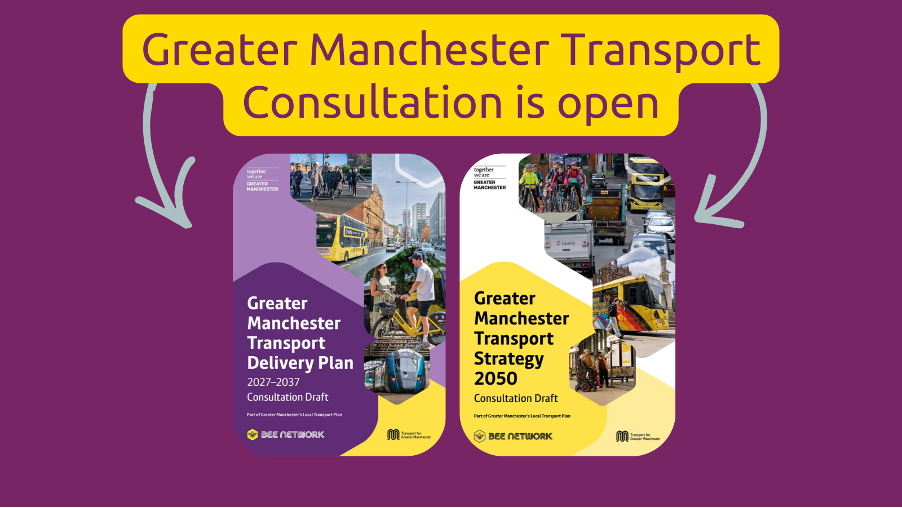Earlier this month, the UK Government has published its Get Britain Working White Paper, outlining reforms to reduce economic inactivity and raise employment to 80%.
The plan aims to tackle the root causes of non-employment by joining up health, skills, and work support tailored to local communities.
This blog highlights the White Paper’s key reforms and shares some points we raised in our response to the Pathways to Work Green Paper.
Key Reforms at a Glance
- Cutting waiting lists: So people can recover more quickly and return to work, while also focusing on preventing illness.
- New Jobs and Careers Service: A single system to help people develop skills, progress in their careers, and find good jobs, not just manage benefits.
- Locally Joined-Up Support: Empowering mayors and councils coordinating work, health, and skills programmes tailored to local needs.
- Youth Guarantee: Making sure every young person has a real chance to work or learn, with trial schemes starting in 2025.
- Employer Support: Helping employers recruit and retain people with health conditions and promote inclusive workplaces.
- Health and Disability Benefits Reform: Supporting disabled people while encouraging engagement with work where possible.
Government Missions Behind the Plan
The White Paper links employment reforms to five wider government missions:
- Growth: More people in good jobs, supported by a Modern Industrial Strategy.
- Opportunity: Giving children the best start in life and building skills for growth.
- Health: Fixing NHS foundations, shifting towards prevention, and aligning with the forthcoming NHS 10-Year Health Plan.
- Clean Energy: Harnessing the green transition to create up to 725,000 jobs by 2030.
- Safer Streets: Expanding neighbourhood policing.
Tackling Ill Health and Economic Inactivity
Ill health is one of the biggest drivers of economic inactivity. The government plans to:
- Deliver 8,500 more mental health staff and 40,000 extra elective appointments each week.
- Ensure no patient waits more than 18 weeks from referral to treatment.
- Expand access to NHS Talking Therapies and Individual Placement Support for people with severe mental illness.
- Launch Connect to Work, a new supported employment programme aiming to support up to 100,000 people per year from 2026.
- Trial place-based approaches in eight areas across England and Wales, testing how local health, skills, and employment services can be better integrated.
Our response to the welfare Green Paper emphasises the need for workplaces that truly support all employees. This includes providing direct government support where adjustments are lacking, equipping employers with practical training, and expanding Access to Work with simpler, faster processes.
Clear mental health policies, in-house support, and prevention of burnout, bullying, and stress are essential, alongside stronger legal protections for disabled employees. Importantly, all strategies around workplace adjustments and assistive technology should be co-designed with disabled people and carers to ensure they are practical and effective.

A Youth Guarantee
The Youth Guarantee aims to prevent young people from falling out of education, employment, or training by:
- Expanding training, apprenticeships, and work opportunities.
- Providing earlier support for those at risk of becoming NEET (not in education, employment, or training).
- Offering work experience, careers advice, and mental health support in schools and colleges.
- Involving young people directly in shaping the guarantee through an advisory panel.
A New Jobs and Careers Service
The current system – split between Jobcentre Plus and the National Careers Service – will be replaced with a single, universal service that:
- Supports anyone looking for work, skills, or career progression, not just benefit claimants.
- Works in partnership with employers to match people with vacancies.
- Provides personalised, tailored support instead of a one-size-fits-all approach.
- Offers a stronger digital platform, supported locally for those needing face-to-face help.
- Embeds lifelong learning, tackling the fact that nine million adults lack basic skills in literacy, numeracy, or digital competence.
A System-Wide Approach
The White Paper acknowledges that employment cannot be separated from wider challenges like childcare, housing, transport, and poverty.
Key steps include:
- A 10-year Industrial Strategy to drive growth in sectors like clean energy, life sciences, creative industries, and digital.
- A new Child Poverty Taskforce, linking labour market reforms to income support for families.
- An independent review into healthy workplaces, focusing on recruitment and retention of disabled people, prevention of workplace illness, and earlier interventions for sickness absence.
- Green Paper on long-term health and disability benefits reform: Pathways to Work: Reforming Benefits and Support to Get Britain Working.
Without more financial support and wider investment in healthcare, housing, and social services, the plan risks leaving those most in need behind.”
– Styliana Pasiardi, Policy and Campaigns Manager
Devolution and Local Delivery
Reforms will be implemented differently across the UK, reflecting devolved powers in Scotland, Wales, and Northern Ireland.
In England, combined authorities like Greater Manchester and the West Midlands will play a leading role in shaping local delivery.
Trailblazers will test what works in practice, with stronger use of local data, accountability frameworks, and partnerships with charities, health services, and local government.
Closing thoughts
For many disabled people, especially those with complex needs, employment may not be suitable, and support should reflect this reality. Significant barriers remain, such as inaccessible transport, lack of funded support, poor workplace adaptations, and limited employer understanding, especially of invisible or fluctuating conditions.
For many disabled people, especially those with complex needs, employment may not be suitable, and support should reflect this reality. Significant barriers remain, such as inaccessible transport, lack of funded support, poor workplace adaptations, and limited employer understanding, especially of invisible or fluctuating conditions.
The Government must prioritise dignity, lived experience, and tailored support in all reforms. True inclusive employment starts with removing systemic barriers, not adding pressure to work. Policies that ignore the realities of disabled people’s lives risk deepening inequality.
Stay informed about our work by:
- Signing up to our campaign updates
- Checking our website news
- Following us on Bluesky, X, and LinkedIn



